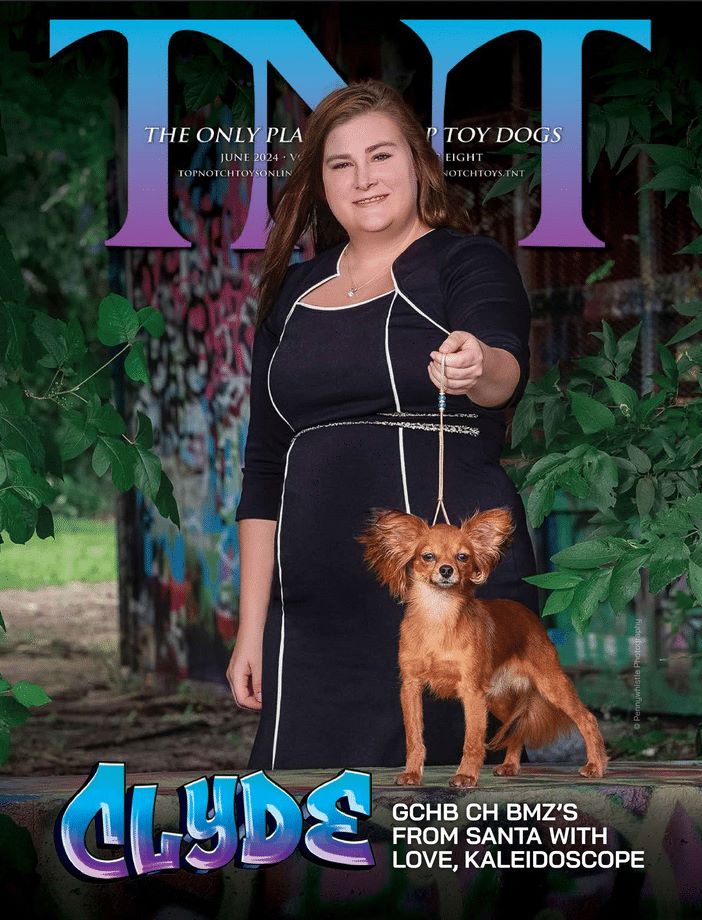The sale of a show prospect puppy is a matter of contract, even if never put in writing. An oral (unwritten) agreement, to exchange something of value for money or for something else of value, is still a contract.
Contracts for Show Prospect Puppies can be complex and, therefore, difficult to prepare. A breeder is trying to predict (and ensure) that the pup will succeed in the show ring in 6, 12 or 18 months, and then succeed in breeding; this is never a sure thing, particularly when the puppy is going to a new home and virtually all aspects of the dog’s life are out of the breeder’s hands. Even with the best puppy, there is a risk that the buyer will not achieve the dog’s potential—out of ignorance, neglect, or just through poor decisions. Many factors must be considered, and optimally, addressed in
the contract.
Since a breeder’s career depends on the success of what they breed, you’d think that they would try to maximize the chances of each show prospect succeeding, including spelling out what the Breeder and Buyer will need to do, to make that happen—and what the parties will do if something goes wrong. Too many times deals are struck for show potential puppies, without a full disclosure of the expectations of each party, of what could go wrong, and of what the parties will do about it, if it does.
Vague contracts are problematic contracts
Contracts for Show Prospect Puppies that lack specificity of important terms, contracts that aren’t in writing, and those made without adequate forethought about what can and probably will happen, are all inherently problematic. Consider this example:
- Seller says to Buyer of a lovely young pup, “It’s yours for $2,000, and if it turns out nice, you can show and breed it.” Buyer says, “Great,” pays the money, takes the puppy home.
Was that a contract? Yes, although a rather poorly formed one—for several reasons:
- First, it was not in writing. Down the road, these
parties have no way to prove what the terms were. Breeder might later deny he gave permission to breed or to show it. Or, the dog “turns out” to have several undesirable inheritable conditions, but Buyer wants to bred it anyway, denying there was any condition about it turning out.
- Second, what does “it’s yours” mean? When it’s time to register the puppy, will Breeder say, “I will be co-owner because (a) that’s how I always do it, (b) that’s how everyone does it or (c) I have the papers and you don’t.” This is known to happen and it creates huge problems stemming from unwanted and poorly
formed co-ownerships.
- Third, what does “if it turns out” mean? Who decides whether the puppy turned out? And at what age is it decided? Who pays for health testing that the Breeder demands? And if he doesn’t “turn out,” what happens? Does the dog get neutered? Does Breeder take him back and give Buyer another one?
- Fourth, “you can show and breed” is extremely vague. The parties have no guidance on who pays entries, who pays for a handler, or whether Breeder can handle the dog himself. Similarly, assuming the parties get the dog finished, they still have no framework for issues like when can it be bred; who picks the breeding partner; and if female, who pays stud fees, and who owns the puppies. This particular kind of dispute over a bitch often ends up with the Breeder refusing to sign off the litter—either for spite, or until he gets a puppy back (or whatever else he may be seeking).
Vague contracts with unanswered questions like these cause many disputes over show dogs. However, even if the parties do have a full discussion and make a detailed agreement about the dog’s future, the same type of questions arise when the parties fail to put their agreement in writing. People forget what they said; they wish they made a different deal; they refuse to admit what they agreed to. Not being able to prove what your agreement was is almost as bad as never having made the agreement in the first place.
Resolving the issues: Costly and difficult
The AKC is usually no help in these issues: it is a pedigree registry, not a forum for ownership or breeder/buyer disputes. Breed clubs, similarly, have no role in such disputes unless, perhaps, one party has transgressed the club’s ethical code; even then, the complaints usually go nowhere.
Sometimes the disputes go to court, which usually means each side will spend more than the puppy cost, and the puppy will be past breeding age by the time the dispute is resolved—if it ever is. Frequently, such disputes are never fully resolved. As a result, the dog may be neither shown nor bred, while the parties end up with lingering hard feelings and lifelong grudges (even vendettas) played out in social media forums and/or at dog shows. Even without a court trial or AKC bench committee, a dog-related dispute can be “tried” in the “court of public opinion” in this fashion. The loser in such a battle is often forced to pay a high price in terms of reputation.
Avoiding the problems in the first place
To minimize such problems, a few common sense rules apply when making contracts for Show Prospect Puppies.
Rule #1: Know your state laws regarding puppy sales and consumer fraud as it applies to the sale of dogs. If you don’t know the law or how to follow it, consult a lawyer.
Rule #2: When you plan to sell a show prospect, write out a list of “what ifs,” including every nightmare you can imagine with a co-owner on a show prospect that would feel like a real “deal breaker” to you. For example: What if the buyers refuse to show or breed it; they don’t give it proper vet care; they use it to breed “designer dogs”; they sell it to someone else without telling you; they spay or neuter it without telling you; they move five states away; they die or become permanently disabled? Then read your contract again (or start to write one, if you don’t have one). See if your contract addresses those topics. Ideally, your contract (a) prohibits the buyer’s actions that would cause the trouble, (b) mandates what must happen, and (c) carries a substantial and clear negative result when the wrong thing happens, for example, if Buyer breeds the dog without your permission, you have the right to reclaim the dog and receive $5,000 in liquidated damages. If you don’t set forth the liquidated damages, you will probably have to go to court to prove your damages. Of course, you need to be sure the remedies you put in your contract are allowable under law, so you should consult an attorney versed in dog law, to finalize your contract.
Do your homework, and have those difficult discussions with your prospective buyer before you place your pride and joy in their care, potentially losing that dog as an opportunity to perpetuate your breeding program.
Having a discussion about all eventualities that could occur is a good way to find out some new facts about your prospective buyer and their expectations. Better to learn this before they take possession of your show prospect puppy, than after.
It’s been said that “an ounce of prevention is worth a pound of cure.” This certainly applies to selling show prospects. Do your homework, and have those difficult discussions with your prospective buyer before you place your pride and joy in their care, potentially losing that dog as an opportunity to perpetuate your breeding program. The little effort it takes to prepare a proper contract is small compared to what you stand to lose if the sale of a show prospect goes bad.









